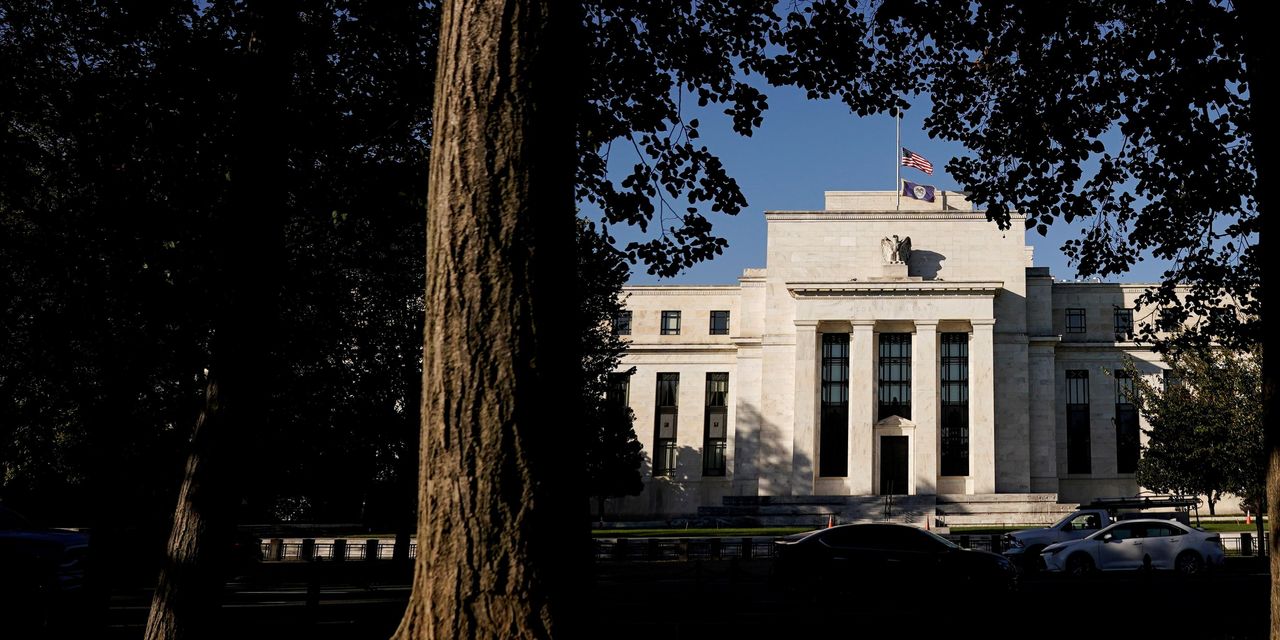
The Omicron variant is circling the globe, closing borders and sparking new restrictions on economic activity. Yet central banks, instead of loosening monetary policy to prop up their economies as they did at the start of the pandemic, are moving to unwind stimulus and raise interest rates.
The moves reflect a new thinking among policy makers about the pandemic’s economic effects: Central-bank officials worry that rather than simply threatening to curtail economic growth, a surge in Covid-19 cases could also prolong high inflation.
In the past week, the Federal Reserve, the Bank of England and the European Central Bank all moved to tighten monetary policy in response to inflation concerns.
When the pandemic first became widespread, in early 2020, governments locked down their economies. Consumer spending fell sharply, employers shed workers and prices fell. Within a few months, the rise of e-commerce and remote working allowed the economy in many developed countries to recover rapidly. With mass vaccinations, that recovery has continued this year.
Now, new case surges are having much less severe impacts on spending and job creation. Instead, they are threatening to prolong supply-chain disruptions and keep inflation elevated.
“What we saw in the early stages of the pandemic is that demand initially dropped a lot more than supply so it ended up being deflationary, particularly because of pretty stringent lockdowns,” said Paul Ashworth, chief North America economist at Capital Economics.
Today, with governments reluctant to impose new lockdowns, it is the other way around, he said.
“Supply could potentially be hit more than demand and therefore it becomes inflationary rather than deflationary this time,” he said.
Scientists are still studying the effects of Omicron. So far, it appears to spread faster than earlier variants and is able to evade immunity from vaccines and past infection, but it might cause milder symptoms.
Speaking to reporters following the Dec. 14-15 meeting, Fed Chairman Jerome Powell said, “Wave upon wave, people are learning to live with this…The more people get vaccinated the less the economic effect.”
For instance, new daily cases peaked at more than 31,000 a day in the first two months of the pandemic last year. As states imposed stay-at-home orders, that led to a record 31.2% annualized decline in gross domestic product. By contrast, cases peaked at around 250,000 a day in the first quarter of 2021 but the economy grew 6.3%.
Governments have imposed fewer, and more targeted, restrictions with each wave. Moreover, many workers and businesses have adapted to outbreaks, such as reverting to remote work.
Nonetheless, economists and investors do expect Omicron to have some negative impact on growth, particularly with international travel. In recent days several European countries have announced new restrictions on activity. Economists at Pantheon Macroeconomics brought down forecast U.S. growth to 3% annualized in the first quarter from 5%. They see most of that decline being made up in subsequent quarters.
Even as the virus’s impact on growth has eased, its impact on inflation pressure appears to have flipped, from downward to upward. Covid-19 prompted consumers to spend less on in-person services such as amusement parks and more on durable goods such as appliances and furniture. Closed factories and ports in China made it harder for imports to reach the U.S. And fear of getting sick kept people from leaving home, leading to a labor shortage and rising wages. About 3.2 million adults said in early September—when the Delta wave was at its height—that they weren’t working because they were afraid of getting sick, according to census data. That was up from 2.8 million before the wave.
SHARE YOUR THOUGHTS
What impact do you think the Omicron variant could have on inflation, growth and interest rates? Join the conversation below.
Economists at Goldman Sachs on Friday raised their core-inflation forecast to 3.4% in June 2022 from 3.25% based on the prospect of Omicron-related factory shutdowns in Asia and higher housing inflation.
Consumer prices in the U.S. rose 6.8% in November over the previous year, the biggest jump in almost four decades. In response, Fed officials said they would likely end their bond-buying stimulus program in March of next year and penciled in three quarter-percentage-point interest-rate increases by the end of 2022.
Increasingly, Federal Reserve officials are worried the new Omicron variant could exert even more upward pressure on inflation.
On Friday, Fed governor Christopher Waller said, “We…do not know if Omicron will exacerbate labor and goods supply shortages and add inflation pressure.”
The shift in officials’ thinking has been under way for a few months. Mr. Powell told Congress in November that fears surrounding Omicron “could reduce people’s willingness to work in person, which would slow progress in the labor market and intensify supply-chain disruptions.”
If that is the case, it could push the Fed to raise rates faster than anticipated, said Robert Dent, senior U.S. economist at Nomura Securities, who expects four rate increases next year.
“They know now this is an inflationary phenomenon and inflation is already up pre-Omicron, so it reinforces this tendency to be hawkish,” he said.
In the U.K., where Omicron has pushed new daily cases to record highs, the government of Prime Minister Boris Johnson has introduced rules that require proof of vaccination for entry to nightclubs and some other venues, although those restrictions are milder than those during some previous surges. But the Bank of England, responding to elevated inflation, raised a key interest rate last week for the first time since the onset of the pandemic.
“The experience since March 2020 suggests that successive waves of Covid appear to have had less impact on GDP, although there is uncertainty around the extent to which that will prove to be the case on this occasion,” policy makers said.
The Bank of England had previously assumed that receding Covid-19 infections would alleviate upward pressure on goods prices by rebalancing consumers’ spending toward services. With renewed social distancing, “this rebalancing was now more likely to be delayed and so global price pressures might persist for longer,” minutes to the bank’s meeting said. “China’s current zero-Covid strategy could lead to renewed disruptions at Chinese factories and ports, and could affect shipping costs,” the minutes added.
Against that, overall demand, in particular for services, could slow, the minutes said, leaving the net impact on inflation unclear.
The European Central Bank also believes that the new variant’s impact is likely to be much less severe than during the first wave. Thursday it announced the end of a program of bond purchases—the Pandemic Emergency Purchasing Program—that was intended to offset some of the negative economic consequences of Covid-19.
But ECB President Christine Lagarde told reporters after the meeting that she was closely watching how Omicron would affect supply.
“The balance between the inflationary or deflationary impact that Omicron will have is still totally uncertain,” she said.
Write to David Harrison at [email protected] and Paul Hannon at [email protected]
Copyright ©2021 Dow Jones & Company, Inc. All Rights Reserved. 87990cbe856818d5eddac44c7b1cdeb8








